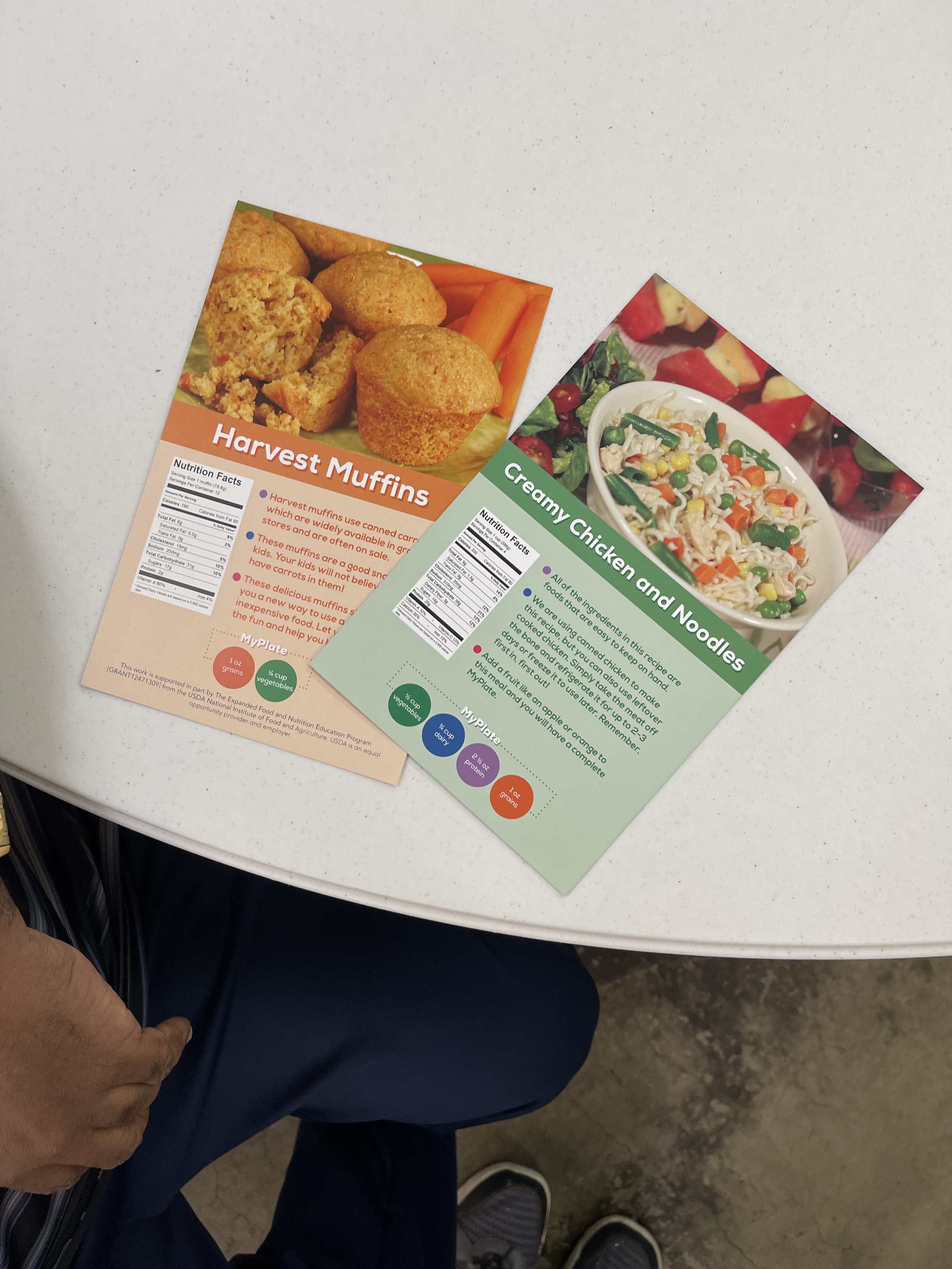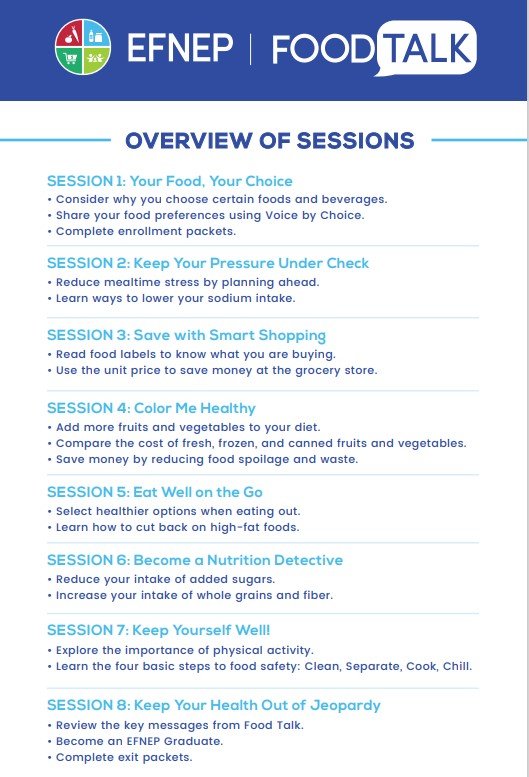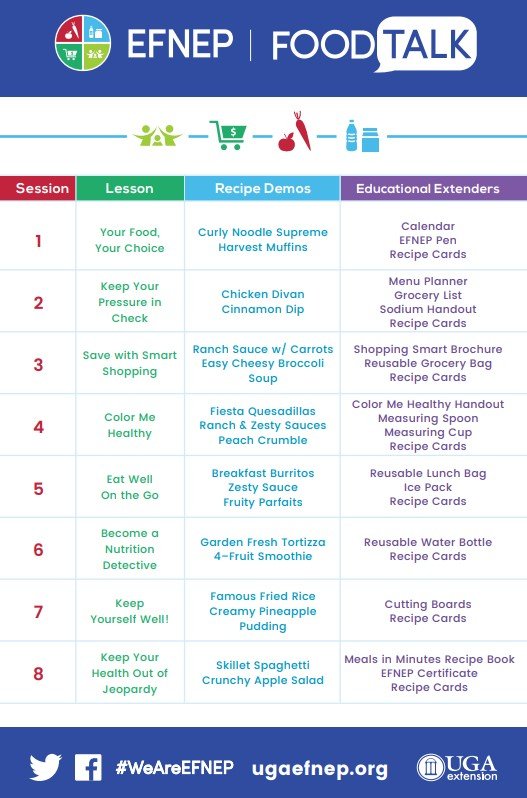Affordably Nutritious
We teamed up with UGA Extension for the Expanded Food and Nutrition Education Program!
The Expanded Food and Nutrition Education Program’s goal is to assist in acquiring the knowledge, skills, and changed behaviors necessary for nutritionally sound diets and to contribute to their personal development and the improvement of total family diet and nutritional welfare.
Participation in EFNEP should result in:
· Improved diets and nutritional welfare for the total family.
· Increased knowledge of the essentials of human nutrition.
· Increased ability to select and buy food that satisfies nutritional needs.
· Improved practices in food production, preparation, storage, safety, and sanitation.
· Increased ability to manage food budgets and related resources such as Food Stamps.
Audience
The Expanded Food and Nutrition Education Program must include programming to reach two primary audiences: adults and youth.
Adult: Low-income individuals in rural or urban areas are responsible for planning and preparing the family’s food, emphasizing households with young children.
Youth: Low-income 4-H youth living in rural or urban areas and consistent with the respective State definition of 4-H age.
Ensuring that all eligible persons have equal access to the program’s benefits and facilities without regard to race, color, national origin, sex, religion, age, or handicap is an essential objective of the Extension Service. This objective should permeate the efforts of the Expanded Food and Nutrition Education Program.
EFNEP Subject Matter Content
Food and nutrition subject matter is the main content for both adult and youth audiences. Instruction should reflect the nutritional needs and cultural heritage of the audience. Content areas appropriate for training staff and teaching participants are:
· Nutrition knowledge, skills, and attitudes necessary to improve diets (normal nutrition).
· Planning for daily food needs.
· Knowledge of financial management relating to family food budgets, adaptations for
uneven incomes, and local food resources.
· Use and care of equipment used for food preparation, storage, and utilization.
· Food safety, health, and sanitation practices.
· Food practices that reinforce the personal development of family members.
· Gardening and food production techniques.
· Food preservation practices.
· Maternal and infant nutrition education which complements other programs and
information received from health delivery systems.
· Body weight, food intake, health, and fitness.
· Referral to other resources and assistance programs.
Extension Service, USDA, shall continue to provide research-based educational resources which reflect USDA recommendations, current knowledge on nutrient requirements, and other related information. Learn more at https://ugaefnep.org/




